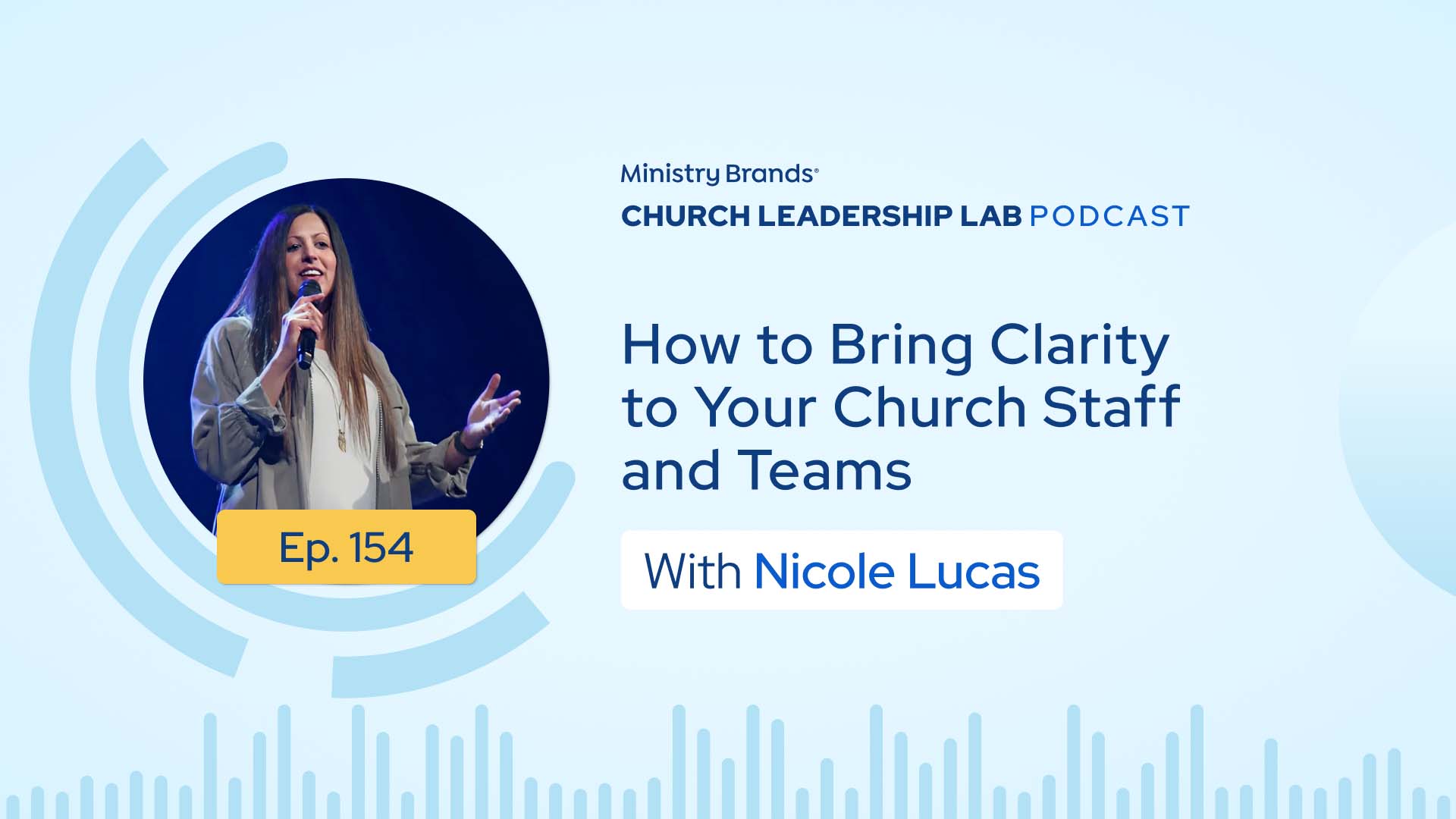Digital Ministry vs. Hybrid Ministry: The Main Differences
The main differences between digital ministry and hybrid ministry lie in their method of engagement and scope of interaction. Digital ministry operates entirely online, using digital tools such as websites, livestreams, social media, and mobile apps to connect with people virtually, while hybrid ministry combines both in-person and digital approaches to offer a blended experience. Hybrid ministry maintains the relational strength of physical gatherings while extending reach through online platforms, whereas digital ministry prioritizes scalability, convenience, and remote access to church life.
What is the Digital Ministry?
Digital ministry is the intentional use of digital platforms and technology to share the Gospel, disciple believers, and build community online. It involves websites, livestreams, social media, online groups, and apps to minister to people beyond the physical church building. The goal is to meet people where they are digitally and provide them with accessible, engaging, and spiritually nourishing content.
How does the Digital Ministry work?
Digital ministry works by leveraging digital tools to deliver sermons, facilitate small groups, provide discipleship resources, and engage people in real-time or on demand. It includes using livestreaming for services, email and SMS for communication, church websites for content delivery, and social platforms for interaction and outreach. By strategically managing and tracking digital engagement, churches can extend their mission and support spiritual growth in virtual spaces.
How does the Digital Ministry utilize ChMS?
Digital ministry utilizes Church Management Software (ChMS) to centralize communication, track engagement, manage online giving, organize volunteers, and follow up with members. ChMS platforms streamline digital operations by integrating data, automating administrative tasks, and enabling personalized digital touchpoints. This ensures churches remain connected with their community while maintaining order and scalability in their online ministry efforts.
What are the Advantages of Digital Ministry over Hybrid Ministry?
The advantages of digital ministry over hybrid ministry are listed below.
- Greater Reach: Connects with global audiences beyond physical limitations.
- 24/7 Accessibility: Allows anytime engagement with sermons and content.
- Lower Operational Costs: Reduces need for physical infrastructure.
- Data-Driven Insights: Offers analytics for targeted ministry decisions.
- Quick Scalability: Easier to grow and expand digital content.
- Remote Discipleship: Facilitates learning and growth for distant members.
- Crisis-Proof: Remains fully functional during emergencies or lockdowns.
Is the Digital Ministry common nowadays?
Yes, digital ministry is common nowadays, especially in the post-pandemic era where churches learned the value of online engagement. With more people turning to digital platforms for spiritual content and connection, churches have adapted by creating livestreams, podcasts, and online communities. This shift has made digital ministry a standard part of modern church outreach and discipleship strategies.
Is Switching to the Digital Ministry a good idea?
Yes, switching to the digital ministry is a good idea for churches seeking to expand their reach, engage tech-savvy generations, and remain relevant in a digital-first culture. It allows ministries to connect with people wherever they are, offer flexible participation, and use data to personalize spiritual growth. When planned strategically, digital ministry enhances accessibility and impact, making it a wise investment for long-term ministry growth.
What is a Hybrid Ministry?
Hybrid ministry is a church model that integrates both in-person and digital elements to reach and serve congregants. It combines traditional face-to-face worship and fellowship with online tools like livestreams, social media, and virtual discipleship, allowing people to participate in church life regardless of location. The goal is to provide flexible, inclusive ministry options that meet the diverse needs of both local and remote members.
How does Hybrid Ministry work?
Hybrid ministry works by offering simultaneous or complementary physical and online experiences---such as hosting live worship while livestreaming the service, offering both in-person and virtual small groups, and maintaining digital communication alongside on-site ministries. Churches use various technologies and platforms to ensure both audiences are equally engaged and connected, creating a seamless blend of physical presence and digital accessibility.
How does Hybrid Ministry utilize ChMS?
Hybrid ministry utilizes Church Management Software (ChMS) to unify physical and digital church operations, tracking member engagement, managing event participation, and coordinating volunteer and communication efforts across both formats. ChMS helps churches streamline hybrid interactions by offering centralized tools for attendance, giving, messaging, follow-ups, and content distribution, ensuring all members---online and offline---are cared for effectively.
What are the Advantages of Hybrid Ministry over Digital Ministry?
The advantages of hybrid ministry over digital ministry are listed below.
- Stronger Relational Connection: Maintains face-to-face fellowship and community building.
- Wider Accessibility: Offers options for both in-person and remote attendees.
- Personalized Engagement: Meets diverse preferences and comfort levels.
- More Discipleship Depth: Combines the strengths of physical interaction with digital learning.
- Increased Participation: Encourages attendance from those who might not come physically every week.
- Resilience and Flexibility: Adapts easily to changing circumstances or emergencies.
Is Hybrid Ministry common nowadays?
Yes, hybrid ministry is very common today as churches adapt to meet post-pandemic expectations and technological shifts. Many congregants now value both physical community and the convenience of online access, prompting churches to offer services and resources in both formats. This approach has become a new standard for inclusive and sustainable ministry.
Is Hybrid Ministry better than Digital Ministry?
Yes, in many cases, hybrid ministry is considered better than digital ministry because it preserves the strengths of in-person interaction while extending digital accessibility. It fosters deeper relationships through face-to-face fellowship while still reaching remote or tech-savvy members. Though it requires more coordination and resources, the balance it provides often results in stronger engagement and broader ministry impact.
What are the Main differences between Digital and Hybrid Ministry?
AspectDigital MinistryHybrid MinistryPrimary FocusOnline-only platforms and virtual engagementCombination of physical presence and digital engagementAudience DesignDesigned for remote or tech-savvy audiencesDesigned for both in-person and digital participantsCommunity FormationBuilds online communities through social platforms and digital toolsBuilds community through both in-person fellowship and digital connectivityResource AllocationInvests mainly in technology, digital content, and online toolsDistributes resources between on-site ministries and digital platformsMeasurement of SuccessSuccess is measured through online metrics such as reach, clicks, and virtual engagementSuccess is measured by both physical attendance and digital participation metrics
How to choose between Digital and Hybrid Ministry?
To choose between digital and hybrid ministry are listed below.
- Consider the tech access, age groups, and preferences of your church members.
- Define whether your priority is digital reach, relational depth, or a balance of both.
- Determine if your church can support both physical and digital formats effectively.
- Urban, rural, or global churches may have different engagement needs and infrastructure.
- Choose the model your team can consistently manage and grow over time.
- Ensure you have the right tools (e.g., livestreaming, ChMS) to support the chosen model.
- Ask members how they prefer to connect and worship, and adapt accordingly.
Are there similarities between Digital and Hybrid Ministry?
Yes, there are similarities between digital and hybrid ministry, as both leverage technology to reach and disciple people beyond traditional church walls. They aim to expand ministry impact, enhance engagement through digital tools, and provide flexible options for worship, learning, and connection. Both models also prioritize accessibility, effective communication, and scalable church growth strategies, with the primary difference being how much they depend on or integrate in-person gatherings.
How can Ministry Brands assist with Digital and Hybrid Ministry?
Ministry Brands can assist with digital and hybrid ministry by offering comprehensive church management software (ChMS), giving solutions, livestream tools, mobile apps, and engagement platforms tailored for multi-channel ministry. Their solutions help churches manage communications, schedule volunteers, track attendance, measure engagement, and ensure secure giving---whether ministry is happening online, onsite, or both. By providing scalable and integrated digital tools, Ministry Brands empowers churches to grow and thrive in any ministry model.




